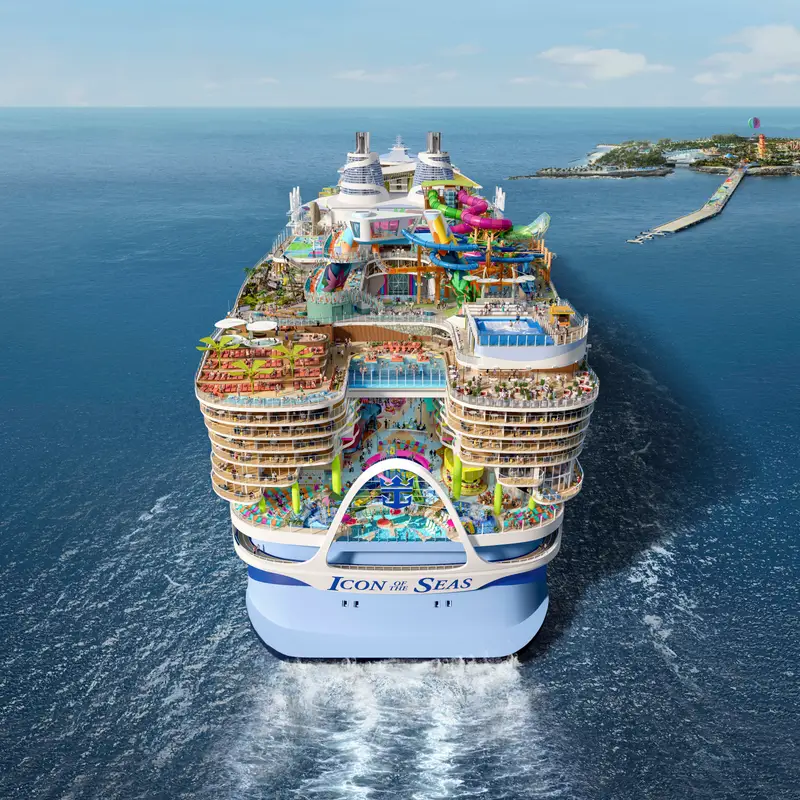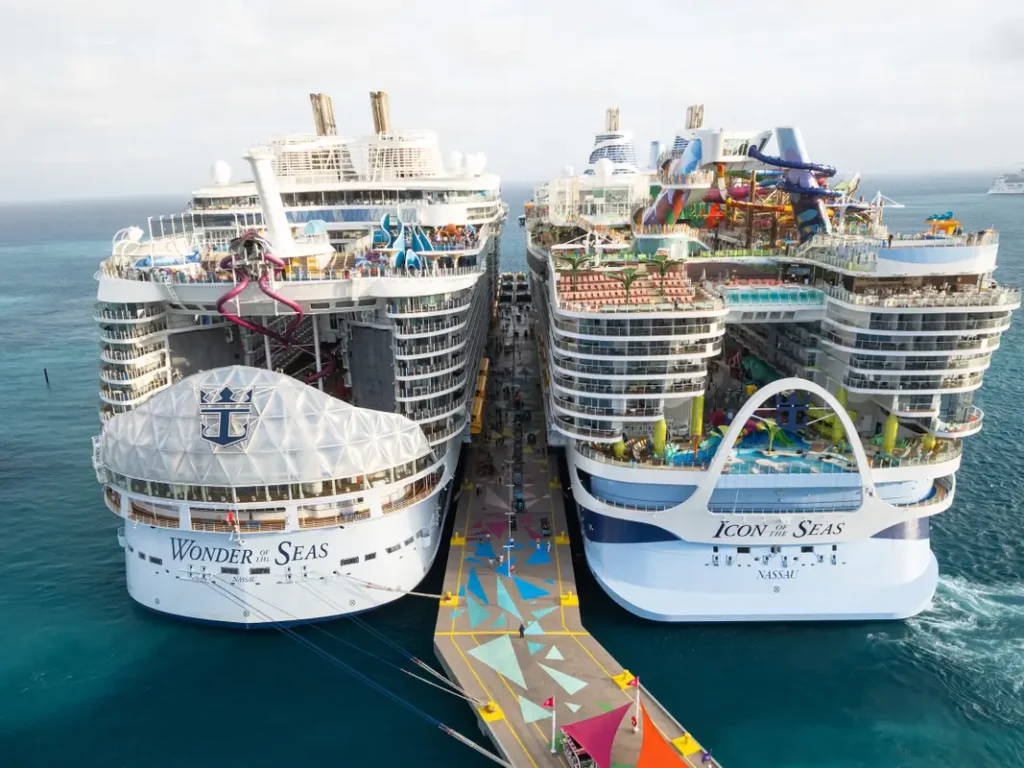
The Rise and Controversy of Mega Cruise Ships: The Icon of the Seas Phenomenon
Introduction: The imminent departure of the Icon of the Seas, the world’s largest cruise ship, from the Port of Miami marks a milestone in the resurgence of the cruise industry post-pandemic. However, as this behemoth of luxury and entertainment embarks on its maiden voyage, it stirs a storm of debate surrounding the ethics and sustainability of modern cruising.
Key Points:
The Icon of the Seas:
- Royal Caribbean’s Icon of the Seas epitomizes the opulence and extravagance of modern cruising, boasting an array of amenities ranging from pools and waterslides to dining options and entertainment venues. Its debut signals the rapid resurgence of the cruise industry after the pandemic-induced hiatus.
Evolution of Cruising:
- The concept of cruising evolved from a leisurely pastime to a mass tourism phenomenon, driven by innovations that transformed ships into floating destinations. Carnival’s pioneering introduction of onboard entertainment in the 1970s revolutionized the industry, leading to exponential growth in passenger numbers.
Environmental Concerns:
- Despite its popularity, the cruise industry faces significant scrutiny over its environmental impact, particularly regarding emissions and pollution. Cruise ships traditionally rely on heavy fuel oil, emitting substantial amounts of CO2 and other pollutants. Efforts to transition to cleaner fuels like liquefied natural gas (LNG) have been met with skepticism due to concerns about methane emissions and insufficient regulatory measures.
Controversies and Criticisms:
- Mega cruise ships like the Icon are symbolic of societal excess and superficiality to critics, who denounce them as monuments to overconsumption and environmental degradation. Concerns extend to labor practices, with reports of low-wage workers enduring long hours and minimal benefits.
Appeal to Younger Travelers:
- Despite controversies, the cruise industry is attracting a younger demographic, with millennials and Gen Z showing increasing interest in cruise vacations. Companies like Virgin Voyages cater to this demographic with tailored amenities and experiences, challenging traditional perceptions of cruising.
Economic Impact and Ethical Dilemmas:
- Cruise ships serve as economic lifelines for port communities while facing opposition from environmental activists and local residents. Calls for stricter regulations and port restrictions highlight the ethical dilemmas inherent in the industry’s growth.
Conclusion: The Icon of the Seas epitomizes the dichotomy of modern cruising: a symbol of luxury and leisure for some, and a target of criticism and controversy for others. As the cruise industry navigates its post-pandemic resurgence, it must confront environmental concerns, labor issues, and ethical dilemmas while catering to evolving consumer preferences. The allure of cruising persists, but its sustainability hinges on addressing these challenges in a meaningful and transparent manner.

